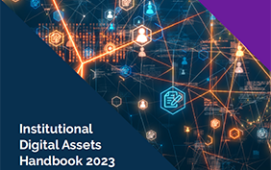
Aquis Exchange PLC has successfully migrated the primary and secondary markets of Aquis Stock Exchange to Amazon Web Services (AWS), marking it as the first recognised investment exchange (RIE) to run a matching engine in production on the cloud.
Since 27th November 2023, the group’s Aquis Stock Exchange division has been matching trades on all its AQSE markets – AQSE Main Market, AQSE Growth Market (Apex and Access), and AQSE Trading – on AWS.
According to the company, this promises numerous advantages, including scalability, resilience, flexibility, cost efficiency, and a reduced environmental footprint. The scalable capacity of AWS allows for on-demand provisioning, addressing the needs of the exchange with greater flexibility compared to traditional data centres and on-premise setups. The cloud infrastructure enhances resilience, catering to spikes in trading volumes and providing robust backup and failsafe measures.
The project has been a number of years in the making. Three years ago, together with AWS and the Singapore Exchange (SGX), Aquis successfully completed a proof of concept confirming the viability of situating an exchange matching engine in a cloud environment.
Adrian Ip, Managing Director of Aquis Technologies, describes to TradingTech Insight how Aquis Stock Exchange now operates a hybrid setup for its AQSE markets, with certain elements housed in the data centre and others in the cloud.
“The Aquis platform is inherently a distributed system, which means it operates not on a single server but across typically hundreds of servers,” he says. “At the core of the platform is a key component known as the sequencer, which functions as the matching engine. This engine typically follows a ‘single message in – process – single message out’ process. In the AQSE platform that we’ve deployed on the cloud, it’s this sequencer that we’ve migrated to AWS, while the remainder of the platform’s components, things like market data and FIX trading ports, continue to be managed from the data centre.”
Comprehensive testing has shown that any additional latency introduced as a result of running the AQSE matching engine in the cloud is negligible and, more importantly, deterministic. “In our data centres, we utilise direct connects, which establish connectivity to various cloud environments, such as AWS,” says Ip. “We have conducted extensive testing to determine the expected latency levels from these connections to AWS regions and availability zones. Additionally, there is processing latency to consider. We employ standard EC2 instances in AWS and have spent many years testing with millions of messages to these instances to see what results we can expect under a variety of conditions. Currently, we’re seeing an additional incremental latency on the scale of hundreds of microseconds. However, owing to our platform’s architecture, the precision of the sequencer, and our approach to in-network sequencing and message memory management, we can confidently attest to the deterministic performance of our platform. We always aim to achieve an extremely tight distribution of latency, i.e. low jitter. In our initial trials of hosting exchanges in the cloud several years ago, we encountered significant jitter, with latency varying by hundreds of microseconds and sometimes even reaching the millisecond range. However, through our subsequent work with AWS and enhancements to our own platform, coupled with insights gained from testing scenarios, we have managed to reduce that down to approximately four microseconds 99.99% of the time under some designs.”
This milestone by Aquis Exchange PLC demonstrates the potential of cloud technology in enhancing market infrastructure and operations. However, exchanges do face numerous challenges when transitioning to the cloud, says Ip. “Regulatory and technical hurdles are well-known; we have surmounted ours and managed to fulfil all our needs,” he says. “However, commercial challenges are often overlooked. Many exchanges generate revenue through services beyond trading, such as charging per connection, and then restricting connections to a few hundred messages per second. Consequently, there is a significant revenue stream that relies heavily on traditional colocation in exchange data centres which likely represents a significant business shift for many exchanges which rely on this revenue stream today.”
The two multilateral trading facilities (MTFs) operated by the group’s Aquis Markets division – AQXE and AQEU – have not been migrated to the cloud and still run in dedicated colocation facilities.
Alasdair Haynes, Aquis Exchange’s CEO, commented: “This latest development further highlights the focus on innovation within the Group and represents an additional step in the execution of the Aquis Technologies strategy. The cloud-based matching engine enables the business to deliver transformation across the exchange space globally through the application of its cutting-edge, institutional-grade technology.”
Brian Cassin, Head Market Development for Capital Markets at AWS, added: “By running on AWS, the Aquis Stock Exchange is driving transformation across the capital markets industry while continuing to enhance the scalability, functionality and innovation that will benefit its members and stakeholders in an environment where security and resiliency are our highest priority. We will continue to build on the experience Aquis has in creating and facilitating next-generation financial markets with the reliability, global presence, and security of AWS to help Aquis continue to expand and seamlessly transact billions of dollars in trades per day.”
Subscribe to our newsletter





